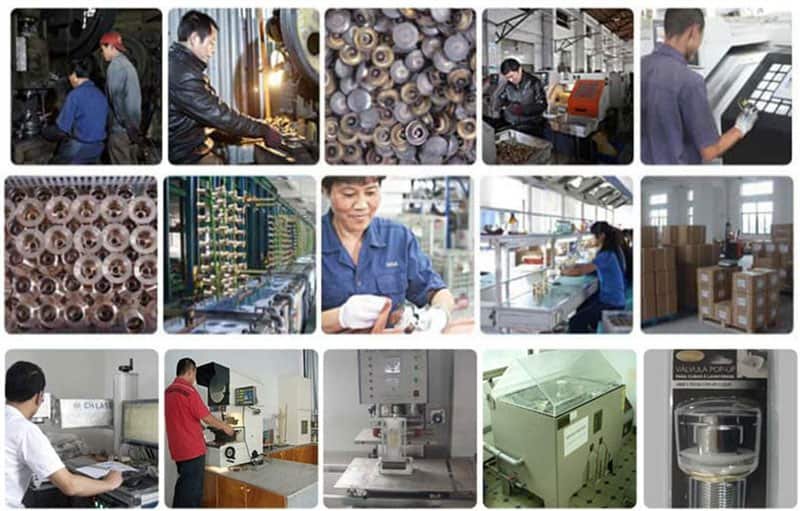Description
Plastic Kitchen Plumbing Hose
HF-0060
OEM&ODM
Basin Sink Flexible Hose Pipe Siphon Feed Hose
Install – Connect to the sink
Plastic ABS has excellent mechanical properties and impact strength and can be used at shallow temperatures; plastic ABS has excellent wear resistance, dimensional stability, and oil resistance and can be used for bearings under medium load and low speed. The thermal deformation temperature of plastic ABS is 93 ~ 118 ℃, and after annealing, the temperature of products can be increased by about 10 ℃. ABS can still show certain toughness at – 40 ℃ and can be used in the temperature range of – 40 ~ 100 ℃.
The chemical stability of polypropylene is excellent. In addition to being eroded by concentrated sulfuric acid and concentrated nitric acid, it is relatively stable for other chemical reagents. However, low molecular weight aliphatic hydrocarbon, aromatic hydrocarbon, and chlorinated hydrocarbon can soften and swell polypropylene. At the same time, its chemical stability is also improved with the increase of crystallinity. Therefore, polypropylene is suitable for making various chemical pipes and fittings with an anti-corrosion effect.
-This waste hose is perfect for use in basins and sinks.
-The hose is flexible and easy to use, making it an excellent choice for any home.
-The hose is made of durable materials, ensuring long-lasting use.
Introduction:
The heart of every kitchen lies in its plumbing system. While metal hoses have their merits, plastic kitchen plumbing hoses are gaining popularity due to their flexibility, affordability, and ease of installation. This guide will walk you through the essentials of plastic kitchen plumbing hoses.
Advantages of Plastic Kitchen Plumbing Hoses:
- Flexibility: They can easily bend without kinking, making them great for tight spaces.
- Corrosion Resistance: Plastic hoses do not corrode, ensuring a longer lifespan.
- Lightweight: Easier to handle and install than their metal counterparts.
- Cost-Effective: Generally less expensive than metal hoses.
- Variety: Available in various lengths and diameters for different needs.
Types of Plastic Hoses:
- PVC (Polyvinyl Chloride): Commonly used due to its strength and chemical resistance.
- PEX (Cross-linked Polyethylene): Recognized for its flexibility and heat resistance. Ideal for hot and cold water.
- Polypropylene: Lightweight and often used in conjunction with other materials for reinforcement.
- HDPE (High-Density Polyethylene) is known for its durability and resistance to environmental factors.
Application in Kitchen Plumbing:
- Sink Drainage: Connects the sink drain to the P-trap, allowing wastewater to flow to the sewage system.
- Dishwasher Connection: Supplies water to dishwashers and drains used water.
- Refrigerator Water Line: Supplies water to refrigerators with built-in water dispensers or ice makers.
- Faucet Connector: Connects the water supply to kitchen faucets.
Installation Tips:
- Check Compatibility: Ensure the hose’s diameter matches the fittings of your appliance or fixture.
- Avoid Overbending: Although plastic hoses are flexible, overbending can cause wear over time.
- Secure Connections: Always ensure connections are tight to prevent leaks. Use plumber’s tape if necessary.
- Regular Inspection: Periodically check for any signs of damage or wear.
Maintenance and Care:
- Avoid Harsh Chemicals: Some chemicals can degrade plastic over time. Use mild cleaning agents.
- Replace Damaged Hoses: If you notice cracks, discoloration, or any damage, replace the hose immediately.
- Regular Cleaning: Prevent the buildup of debris or minerals by flushing the hose with clean water occasionally.
Conclusion: Plastic kitchen plumbing hoses offer a versatile and durable solution for various kitchen applications. With proper care and maintenance, these hoses can provide reliable service for years. When purchasing, always opt for quality products from reputable manufacturers, and consider seeking professional advice or services for installation to ensure longevity and optimal performance.






